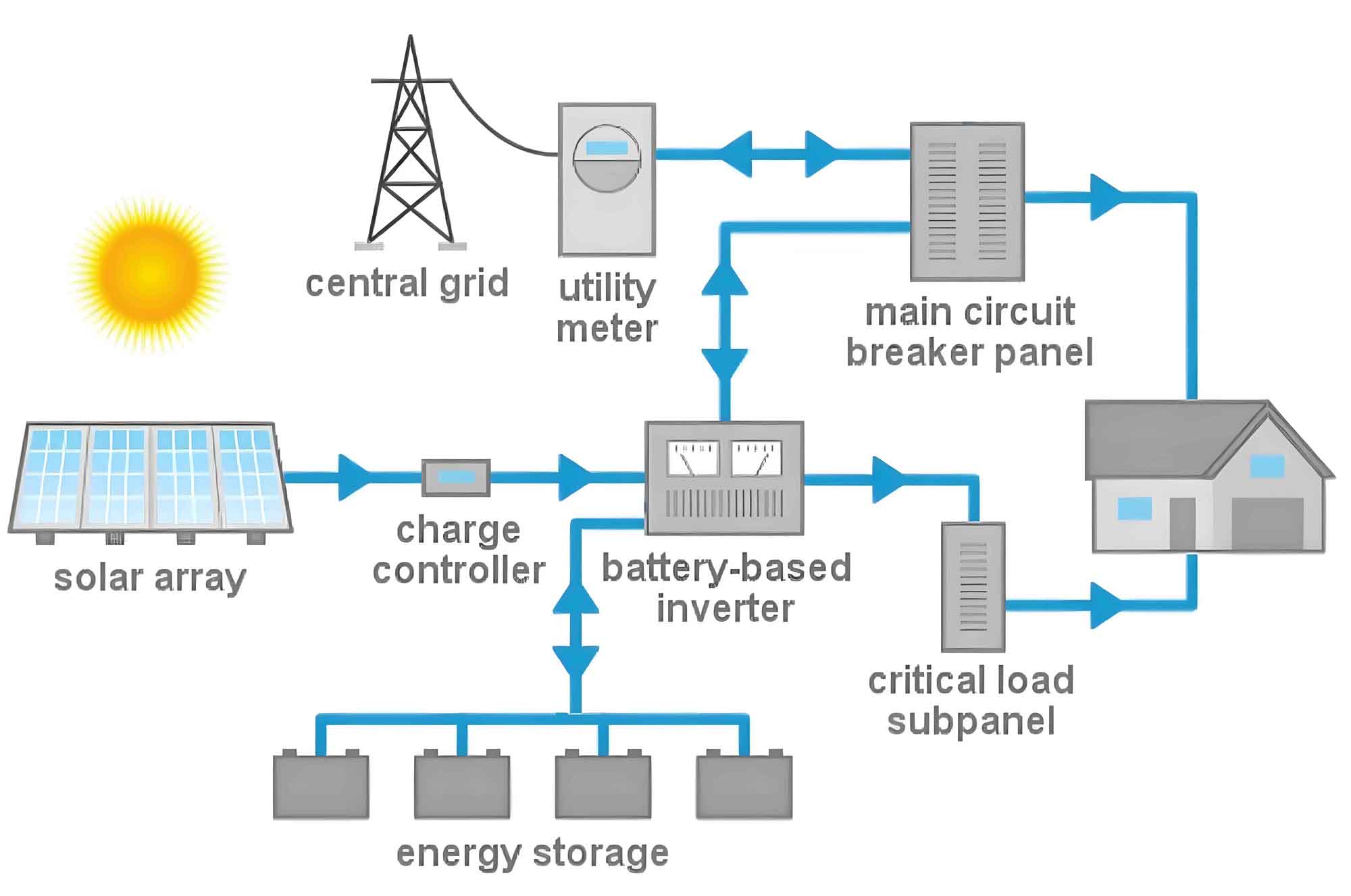
In recent years, solar energy system has become a staple in residential energy solutions, offering a sustainable and cost-effective alternative to traditional energy sources. At the heart of these systems lies the solar inverter, a critical component that has significantly advanced the functionality, efficiency, and reliability of residential solar energy system. This article delves into the transformative role of solar inverter in residential solar energy system, highlighting their types, benefits, and the latest technological advancements.
The Role of Solar Inverter in Solar Energy System
A solar inverter is an essential component of a solar energy system that converts the direct current (DC) generated by solar panels into alternating current (AC) used by home appliances and the electrical grid. Without a solar inverter, the energy harnessed from solar panels would be unusable for most residential applications. Solar inverter also perform several critical functions, such as optimizing power output, ensuring system safety, and enabling energy monitoring and management.
Types of Solar Inverter
There are three main types of solar inverter used in residential solar energy system:
- String Inverters: These are the most common type of solar inverter used in residential installations. They connect multiple solar panels in series (a string) and convert the combined DC output to AC. While cost-effective and reliable, their performance can be affected by shading or panel mismatch issues.
- Microinverters: Unlike string inverters, microinverters are installed on each solar panel, allowing individual conversion from DC to AC. This setup maximizes energy harvest by mitigating the impact of shading and panel mismatch. Microinverters are more expensive but offer greater efficiency and system monitoring capabilities.
- Power Optimizers: These devices are paired with string inverters and installed on each solar panel to optimize the DC output before it reaches the string inverter. Power optimizers enhance the overall efficiency of the solar energy system by addressing shading and mismatch issues, providing a middle ground between string inverters and microinverters.
Benefits of Solar Inverter in Residential Solar Energy System
Solar inverter offer numerous benefits that contribute to the effectiveness and appeal of residential solar energy system:
- Efficiency: Modern solar inverter is highly efficient, with conversion efficiencies often exceeding 95%. This ensures that the maximum possible energy generated by the solar panels is available for use.
- Grid Compatibility: Solar inverter synchronize the solar energy system with the electrical grid, allowing excess energy to be fed back into the grid and credited to the homeowner’s account.
- Monitoring and Management: Advanced solar inverter come with monitoring systems that allow homeowners to track energy production and consumption in real-time, helping them optimize their energy use and identify any issues promptly.
- Safety Features: Solar inverter is equipped with safety mechanisms such as anti-islanding protection, which prevents the inverter from supplying power to the grid during an outage, ensuring the safety of utility workers.
Technological Advancements in Solar Inverter
The continuous evolution of solar inverter is driving the advancement of residential solar energy system. Some of the latest technological innovations include:
- Smart Inverters: These devices incorporate advanced software and communication capabilities, enabling better integration with smart home systems and the grid. Smart inverters can respond to grid signals, helping to stabilize the grid and improve overall energy efficiency.
- Energy Storage Integration: Solar inverter is increasingly being designed to integrate seamlessly with energy storage systems, such as home batteries. This allows homeowners to store excess solar energy for use during nighttime or power outages, enhancing energy independence and reliability.
- Hybrid Inverters: Combining the functions of a solar inverter and a battery inverter, hybrid inverters simplify the installation of solar-plus-storage systems and offer a more streamlined and cost-effective solution.
Comparative Table of Solar Inverter Types
| Feature | String Inverters | Microinverters | Power Optimizers |
|---|---|---|---|
| Installation Cost | Lower | Higher | Moderate |
| Efficiency | Good | Excellent | Very Good |
| Shading Impact | High | Low | Low |
| Monitoring | Limited | Comprehensive | Enhanced |
| Energy Harvest | Moderate | Maximum | High |
Key Considerations for Homeowners
When selecting a solar inverter for a residential solar energy system, homeowners should consider several factors:
- System Size and Layout: The size and layout of the solar panel array can influence the choice of inverter type. Microinverters and power optimizers are better suited for complex roofs with shading issues.
- Budget: While microinverters and power optimizers offer higher efficiency, they come at a higher cost. Homeowners should balance their budget with the expected efficiency gains.
- Future Expansion: For those considering future system expansion or integration with energy storage, hybrid or smart inverters offer greater flexibility and compatibility.
Conclusion
Solar inverter is pivotal in transforming residential solar energy system, enhancing their efficiency, reliability, and functionality. As technology continues to evolve, solar inverter will play an increasingly vital role in the adoption of solar energy, driving the transition towards more sustainable and energy-independent homes. Homeowners looking to invest in solar energy system should carefully evaluate their options and choose the type of solar inverter that best meets their needs and expectations.
